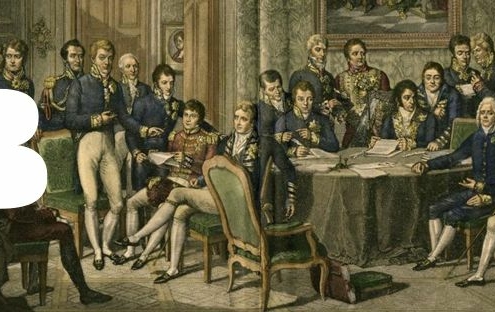
What is it like to be a goshawk ?
aldo 5-10.000, DeepDipWhat is it like to be a goshawk? Helen Macdonald sought to find out – not through theory, but through experience. Her book, H is for Hawk, is not just about falconry – it’s about patience, attention, and connection. Aldo Matteucci writes.

Between theory and practice: Rethinking diplomatic theory
aldo 5-10.000, DeepDipDiplomatic theory says: follow orders. Practice shows: shape reality. Between theory and practice lies the diplomat’s quiet craft. Aldo Matteucci asks if theory can catch up.

The rise of the medical-industrial complex
aldo 10.000+, DeepDipWhy does healthcare cost so much, yet so often fail us at the end of life? Aldo Matteucci explores how modern systems came to prioritise prevention, control, and spending over actual care.

The Trump swerve
aldo 10.000+, DeepDipThe emergence of Trumpism with Donald Trump's candidacy led to a significant shift in political discourse and international relations. Trump's jingoism and attack on established norms have widened the scope of political possibilities, making the world a more fragile place. The Trump swerve has potential global and national consequences, challenging existing systems and institutions, and setting a precedent that could be followed by future leaders, ultimately impacting the stability of the political landscape.

What is virtue?
aldo 10.000+, DeepDipThe message delves into the concept of virtue, tracing its origins from Confucian teachings to its presence in philosophical works by Plato, Aristotle, and stoicism. The text emphasizes that virtue is not a clearly defined concept but rather a practice that emerges through experience, defying straightforward definition. An example of an 800-year-old bonsai tree is used to illustrate the intricacies of virtue, highlighting the importance of harmony, respect for uniqueness, and the complex, multi-layered process that leads to a unique outcome. The writer advocates for embracing the complexities of individual judgment rather than rigid categorical or universal principles in understanding virtue.

Of nudges, path-dependent outcomes, and niche construction
aldo 10.000+, DeepDipThe text discusses the use of nudges, path-dependent outcomes, and niche construction. Nudges are favored for their soft approach in influencing behavior, particularly in scenarios where predictability is key. In contrast, incentives trigger niche construction, leading to unpredictable outcomes as individuals seek optimization. The text emphasizes that agents don't always respond as intended to incentives. An example is proposed where the state could become the default legatee in estate planning. The author questions the ethical implications of such a measure and highlights the deliberate nature of estate planning, which involves niche construction rather than nudges.

A brain made transparent
aldo 5.000-, DeepDip BlogsThe 21st century will involve a deep understanding of humanity and society. A computer program called Program allows researchers to visualize the brain's complexity. With 9 billion brains capable of understanding each other, our social reality surpasses the brain's complexity. Language and philosophical tools like Intuition Pumps help us navigate this intricate social world. Philosophy aims to grasp the interconnectedness of everything. By using such tools, we can enhance our thinking and create a more transparent world.

Piercing the fog of ambiguities
aldo 5-10.000, DeepDipThe text delves into the complexities of disambiguation in anthropology and the evolution of morals, cautioning against projecting present understanding onto the past. It warns that disambiguation may not lead to truth but rather to contingent outcomes based on accepted opinions. The process is described as a continual challenge to common sense and can lead to a deeper but more complex understanding, rather than an absolute truth. The author also critiques the practice of searching for predetermined answers in historical texts, emphasizing the ambiguity of the past over its authenticity.

The uncertain future of national borders
aldo 5.000-, DeepDip BlogsThe text discusses the historical creation of national borders and the challenges they pose, particularly in the Middle East with the case of the Kurds and Turkey's evolving role. It highlights Turkey's ambition to become a regional power and influence neighboring countries like Iraq and Syria. The text concludes that while national boundaries may persist, their relevance could fade over time.

Taking the long view on Balochistan
aldo 5.000-, DeepDip BlogsA lengthy report on the politics of Balochistan, a region in Pakistan, has been published by the Carnegie Endowment for Peace. The report emphasizes the importance of in-depth analysis and highlights the interplay between regionalism, religion, and external influences. It warns against repeating past mistakes and underscores the need for transparency in fostering a national political process.

